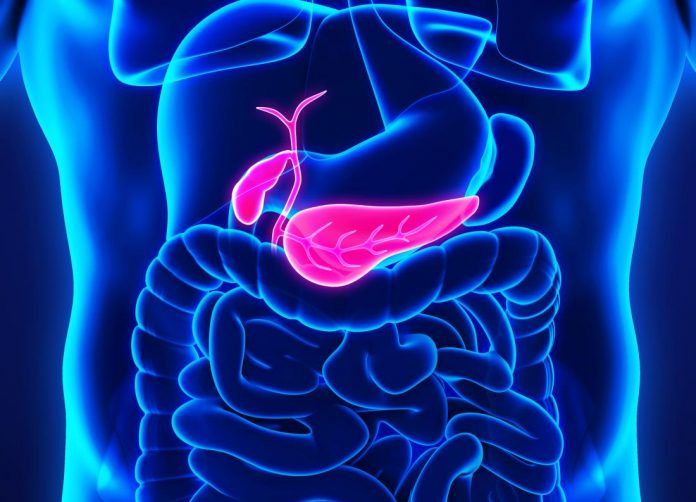Latest available figures from a study published in 2019 by the US-based International Diabetes Federation show that globally around 463 million adults, aged 20 years and above were living with diabetes, and that over 4.2 million deaths in 2019 were attributable to diabetes.
The dollar-cost of health expenditure to treat diabetes in 2019 stood at over US$760 billion. With nearly 80 percent of diabetic patients now living in low- and middle-income nations, where expenditure on healthcare is generally low, the incidence of diabetes is set to increase in the coming years. Moreover, with 1 in 2 people with diabetes remaining undiagnosed, the number of diabetic patients is expected to soar to 700 million by 2045.
Diabetes develops when the body is no longer able to regulate the levels of glucose in the blood. Over a period of time, this inability can lead to a wide range of life-changing complications, including vision loss, kidney damage, stroke, and heart disease.
In healthy individuals, the concentration of glucose in the blood is maintained at optimum levels through the opposing effects of two hormones, insulin and glucagon.
Two types of cells in the pancreas are mainly involved in regulating the mechanism of maintaining blood glucose levels. Alpha cells in the pancreas produce glucagon, which increases the amount of glucose that the liver releases into the bloodstream. Beta cells in the pancreas produce insulin, which stimulates cells around the body to extract glucose from the bloodstream.
In type 1 diabetes, the immune system targets beta cells, reducing insulin production. By contrast, in type 2 diabetes, cells around the body become resistant to the effects of insulin. Beta cells respond by producing more and more of the hormone and eventually die.
Previous studies conducted on mice had shown that a synthetic, or ‘monoclonal’ antibody that blocks glucagon reception in the membranes of liver cells could restore normal blood glucose levels.
Now, researchers at the University of Texas in the US have discovered that blocking glucagon receptors has the indirect effect of transforming alpha cells in the pancreas into beta cells. The newly created beta cells were also found to produce insulin, which helps lower levels of glucose circulating in the blood.
Rather than rely on insulin injections to regulate glucose level, as most diabetic people currently do, giving them back their own beta cells would greatly improve the glucose regulation and quality of life for these people.
Transforming alpha cells into beta cells could be a particularly promising treatment for type 1 diabetes, as even after decades of an autoimmune attack on their beta cells, type 1 diabetics will still have plentiful amounts of alpha cells. If these alpha cells can be harnessed and converted into beta cells it could very well be a viable treatment for anyone with type 1 diabetes.
To discover what happens when antibodies block glucagon receptors, the researchers designed experiments in three different mouse models of diabetes.
In the first model, a genetic mutation induced apoptosis, or ‘cell suicide’, in beta cells in response to a particular chemical treatment. The loss of beta cells reduced the ability of these mice to produce insulin and hence regulate their glucose levels.
When the researchers gave the animals weekly injections of the glucagon receptor antibodies, the treatment significantly lowered the animals’ blood glucose levels.
The antibodies were found to indirectly boost the number of beta cells in the pancreas by almost sevenfold.
To discover where all the extra beta cells were coming from, the researchers used a technique called lineage tracing to label alpha cells in the pancreas and track them through several rounds of division. They discovered that the treatment was converting some of the alpha cells into insulin-producing beta cells.
The researchers could not be sure, however, that the treatment would work during a sustained attack on beta cells by the immune system, which is what happens in type 1 diabetes. To mimic this effect, they used another model, with non-obese diabetic mice, in which the animals’ immune systems depleted their beta cells.
When the researchers treated these mice with the monoclonal antibodies, the animals’ beta cell numbers again rebounded, despite continued immune attacks.
Finally, the researchers tested a third model to find whether the treatment would work in human pancreas cells. They did this by grafting human pancreatic tissue with alfa and beta cells into non-obese diabetic mice, in numbers low enough to ensure that the animals remained mildly diabetic.
When the team treated these mice with antibodies against the glucagon receptor, the human beta cells proliferated, helping to restore blood glucose regulation in the animals.
These studies provide hope that a once-weekly injection of a human antibody against the glucagon receptor can enhance functional beta cell numbers. Changing even small amounts of residual beta cells can have a huge improvement in the quality of life for millions of patients with type 1 diabetes, said the researchers.
















